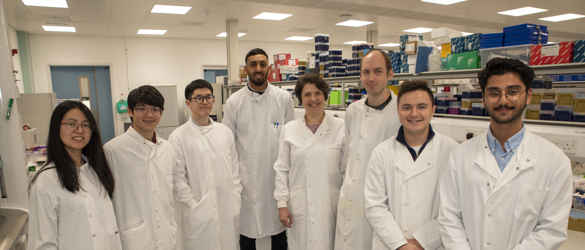The role of the protein ABCC5 in diabetic macular oedema

Prof Heidi de Wet, University of Oxford - £25,000
This research project investigates the protein ABCC5 and its role in diabetic macular oedema (DMO).
What is the problem?
Diabetic retinopathy (DR) is a complication of diabetes mellitus in which high blood glucose damages the retina. A major cause of vision loss in DR is DMO in which blood vessels in the eye become leaky and cause swelling in the macula, the part of the retina responsible for central vision. What causes DMO is not well understood, but oxidative stress is a very important factor.
ABCC5 is a protein responsible for transporting other molecules. It is known to be linked in some way to DMO, although how is not understood.
What did the project achieve?
This research confirmed that ABCC5 is found in different levels in diabetic and non-diabetic people. It looked at how ABCC5 in the retina transports three substances: glutathione (an antioxidant), cGMP (a small molecule which helps prevent blood vessels leaking) and iron (a potentially damaging free radical). The team developed new standardised means of detecting these.
What next?
Now that we know ABCC5’s role, how DMO develops will become clearer. From here, more focused research will look at finding a cure and this project has generated valuable preliminary data.
See our other projects
Since 1987 the Macular Society has invested around £10 million in over 100 research projects.
Explore more research
Beating macular disease through funding medical research and improving the lives of those living with macular disease.
Get the latest research news from the Macular Society
To hear about life-changing research and treatments, subscribe to our monthly enewsletter today. Together we can Beat Macular Disease.
Sign up to our free email newsletter



